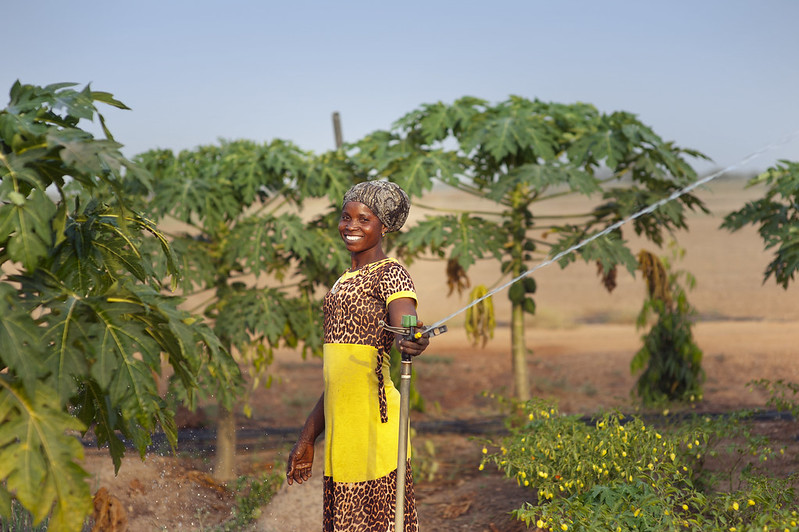
The International Water Management Institute (IWMI) is delighted to be partnering with the Daugherty Water for Food Global Institute at the University of Nebraska to implement the USAID Feed the Future Innovation Lab for Irrigation & Mechanization Systems (ILIMS) Project.
ILIMS is a five-year, $19 million program to develop a global portfolio of Research for Development activities in the broad domains of small-scale irrigation and mechanization systems. The overall goal of this new Innovation Lab is to improve mechanization and irrigation systems which are then adopted by producers and other stakeholders. It seeks to assess the suitability of various systems and enhance targeting of technologies to producers; improve inclusive governance and intentional, inclusive design; strengthen inclusive market systems; and strengthen stakeholder capacity and ability to apply evidence.
Mark Smith, Director General of IWMI said, “We are honored to join the consortium and are enthusiastic for the opportunity to leverage our long-standing experience in small-scale irrigation and scaling in the Global South. Having successfully concluded the Innovation Lab for Small Scale Irrigation and other complementary programs, IWMI is poised to make significant contributions to the ILIMS consortium’s research objectives by drawing upon our capabilities in water accounting and suitability research, partnership and business models with the private sector, adaptive scaling tools, and innovative techniques for bridging knowledge gaps with both the public and private sectors.” IWMI will lead program coordination in Ethiopia and Ghana in addition to implementing multi-stakeholder dialogue platforms in selected focal countries. These platforms will be critical for joint learning, knowledge sharing, and innovation as well as reducing risks for multiple system actors to scale through irrigation markets.
The project will initially focus on Ethiopia, Ghana, Guatemala, Honduras, Nepal, and Rwanda, as well as the East and Southern Africa regions, looking at a range of challenges to smallholder production. It will address the technical aspects of irrigation and agricultural mechanization, as well as practical, related issues such as workforce development for the manufacturing, installation and maintenance of irrigation equipment; efficient collaboration with private-sector companies; public health considerations; and climate sustainability.

